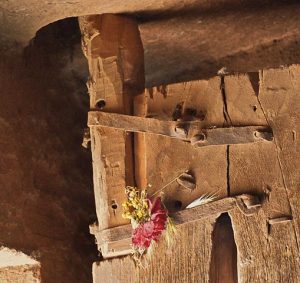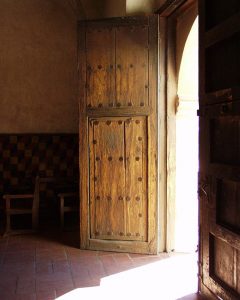I am fascinated by Roman mythology before the Greco-Roman period, partly because I find it so abstruse. Etruscan mythology, already influenced by the Greek, seems more accessible, despite the concerted destruction of the culture perpetrated by early Christians.

Roman deities tend to be abstract energies rather than developed personalities. Even when they take physical form, that form is often perceived as inanimate or at least non-biological. The goddess Cardea, she of the front door hinge to the family dwelling, is a good example. Together with the god Forculus (door) and Liminus (threshold), Cardea forms the energy around the entrance to the abode.
Cardea allows movement through a boundary, so she seems like a goddess to reflect upon for the New Year. We think of boundaries as forces to keep things out (evil spirits, troublesome people), but a functional boundary also allows energies to enter. Cardea filters out undesirable energies as the desirable energies pass the threshold.

